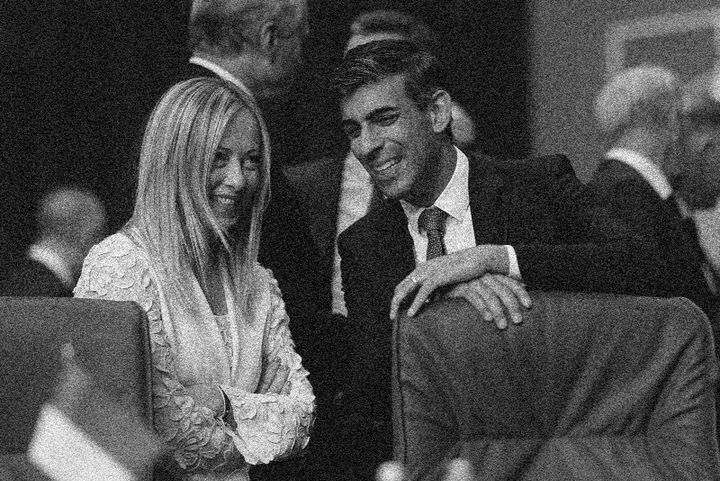After Left Populism, Part Two: Pro-Worker Conservatism in the UK
The Tories are reorganizing around an anti-woke, pro-worker, and pro-democracy branding. Unlike other instances of pro-worker conservativism, it could be highly successful.

In a previous article for Damage, I argued that the British Left is moving towards a moral minoritarianism that increasingly counterposes its political project to the interests of working-class voters. Here I look to the other side: what can be said for the relationship between workers and conservatism in our green and pleasant land? In the coming years, we can predict that a pro-worker conservatism under the leadership of Boris Johnson’s Conservative party will combine a high investment and expenditure response to regional inequalities and Covid with a culture war approach aimed at portraying the Left as anti-working class and anti-democratic. Given the total weakness of the Left, there are good reasons to think that despite its evident contradictions, this project could prove dominant for some time to come.
Ben Fong and Dustin Guastella point in a recent piece to the limitations of “anti-elitist” strands of the Republican Party that purport to advocate for an economic nationalism but are premised on mass political demobilization. In the British context, the situation is quite different: the Conservative landslide in the 2019 election was delivered in large part by working-class voters’ willingness to (at least temporarily) trust the Conservatives to deliver on Brexit alongside a broader One Nation Conservative project that, if not worker-centric, at least promised some redress of yawning regional inequalities. While, as Alex Gourevitch argues, the Republicans are institutionally a tax-cutting party, the same is not necessarily true of the Conservatives in the UK, giving them larger scope for manoeuvre. Although Covid considerably complicated matters, the state capitalist project of Boris Johnson’s Conservatives seems poised to develop as a state-led response to post-Covid economic difficulties.
One of the most striking aspects of this project is its discarding of the party’s previous ideological commitment to austerity, with assorted pledges of increased spending across the country (such as a £100bn “infrastructure revolution” for “left behind” areas that backed Brexit or £34bn for the NHS). It is important to underline what a dramatic departure from the fiscal orthodoxy of the Cameron years this move is, even if it is unclear whether the Tories will ideologically embrace an activist state or will focus more on filling the country lanes of England with brightly-branded “Boris buses”.
Detailed analysis of the 2019 election showed, somewhat surprisingly, that the old Etonian-led Tory party was more popular among people on low incomes than among people with high incomes, establishing a 15-point lead over Labour among low income voters. The reversal of the traditional bases of support across Britain’s two-party system, beginning under Blairism and catalyzed by Brexit, is striking. We are witnessing a fundamental realignment of British politics playing out in real time.
Given the weakness of the Left after its experiment with Corbynism, British politics in the coming decade will likely be defined not by a contest between the Left and the Right but by the contradictions and political limits of the Tory project. In economic terms, the question can be framed in terms of the willingness of the traditional Tory base (particularly affluent Tories in Home Counties around London) to accept mildly redistributive or borrow-and-invest policies. Given that these policies are highly unlikely to threaten the fundamental structure of privilege that the Tory base enjoys, or the economic pre-eminence of the City of London in Britain’s heavily financialized economy, this willingness to wear the costs of a more economically redistributive conservatism may be surprisingly high among traditional Conservative voters. In this sense, Surrey might be prepared to pay for Doncaster.
Less costly for the Tories or their base to address are cultural struggles. One issue that they already have in their sights is “wokeness”, with Johnson ally Michael Gove recently outlining a three-point plan for tackling it. This follows the launch last year of the straightforwardly-named Common Sense Group of Tory MPs who have attacked cultural Marxism for reframing the nation’s history. While the Common Sense Group attack the “folly” of publicizing links between large country homes and Britain’s imperial past, Minister for Women and Equalities Liz Truss has been busy developing a critique of Foucauldian post-modernism. The spread of the disease of wokeness must be stopped before it does any more brain damage to our young people.
Gove’s plan is interesting because it draws explicitly on themes and thinkers that might previously have been associated with the Left. Its three prongs are “understanding your enemy”, “trust the working class”, and “democracy is our ally.” The last two of these are attributed to Blue Labour founder and pro-Brexit campaigner Maurice Glasman. Gove’s pitch here is clear: it is the Tories who are willing to “trust the working class” in various culture wars, which are put forward in class and democratic terms continuous with those of Brexit.
It is worth looking to Gove’s previous tenure as Education Minister in 2010–2014. Gove engaged in a similar project of class-inflected anti-progressivism, leading an attack on what he perceived as the multiple failings of “progressive” educational philosophies. Presented as the pedagogical model of the liberal Left (which was said to include almost the entirety of the teaching profession and in particular the unions), progressive education was constructed as an approach to teaching that celebrated the “spontaneous” or “innate” abilities of children in a pseudo-radical and class-blind way. By focusing on the child (rather than the teacher as a subject expert trained in the transmission of knowledge), Gove’s argument ran, progressive education simply reinforced class differences in knowledge and confidence that children brought to the classroom, exacerbating and legitimating them in the process. Working-class students then had their backgrounds blamed for their lack of educational attainment. Lest this line of attack veer too close to political radicalism, Gove’s critique of progressive education was combined with a reassertion of “British values” to provide the conservative content of core knowledge.
Revealingly, Gove identified the leading intellectual figure of his attempts at reform—which he pitched as a critique of the dominant focus on child-centric teaching techniques and transferable skills and a defense of a focus on knowledge—as American educational thinker E. D. Hirsch, self-identified as “practically a socialist”. At the center of Hirsch’s educational philosophy is the idea that all children need access to a common core of knowledge, which permits entrance into educational and political conversations, and that without the intervention of the education system this “core knowledge” is passed from middle-class parents to their children much more fully and reliably than from working-class parents to their children. Hirsch was very influenced by the educational thought of the Italian Marxist Antonio Gramsci, who recognized that an education system focusing on the “spontaneous” knowledge or responses of the child would end up simply reflecting and reinforcing class differences in their knowledge.
In tackling the coming culture wars, which are likely also to include the future of the much-maligned state broadcaster, the BBC, the Conservatives are already preparing the ground for an anti-woke, pro-worker, and pro-democracy branding. With the Left tacking behind anti-racist and anti-fascist strategies that have the political effect of distancing them from the “problematic” positions imputed to working-class voters, this Conservative strategy could be highly successful. Moreover, when the class war over Covid moves onto its next phase, and the economic costs of the lockdowns are accounted for, there will also be new constituencies in play—not least the low-income workers hardest hit by the immediate costs of Covid and the continued economic fallout. For the Tories, the question will be less whether they have to contest with a Left unconcerned to fight to represent these constituencies beyond “helping those in greatest need”, and more an issue of the willingness of the traditional Tory base to allow for the material concessions necessary to incorporate these groups into their coalition.
The realignment of British politics at the End of the End of History has produced a Conservative Party that may be willing to treat “the working class” as a constituency to be politically contested, although the signs are that concessions on cultural grounds are likely to predominate over material ones: cultural battles are cheap for the Right, and the Left lacks the power to fight anywhere else. At any rate, this is a telling if surprising step forward from the longstanding Labour assumption that the working class has “nowhere else to go”, which the 2019 election rendered unsustainable.
Can “Johnsonism” be considered an example of successful right-wing populism, a more viable vehicle for pro-worker conservativism than Trumpism ever was? As Fong and Guastella argue, right-wing populists around the globe, from Trump to Modi to Orbán, have consistently caved to the wealthy, their populist rhetoric almost instantly proving as hollow as it was bombastic. It’s not clear that Johnsonism, by contrast, was ever a true populism. Rather, Brexit offered Johnson a clear counter-strategy to Corbynism’s incipient populism, since it allowed the calling up of a Leave majority (alongside an anti-Loony Left moral majority) to block Corbynism’s appeal to “the many.”
You might even say that Brexit was the Tories’ (and latterly Johnson’s) opportunity to use a populist strategy to the anti-populist ends of neutralizing the threats of UKIP, the Brexit Party, and Labour in succession. With these populist challengers out of the way, there is now increased room for coalescing around a transnational post-liberalism as a way to further the conservative project. As neoliberalism continues to break down, the Right is not so much advancing a radical alternative to the status quo as governing without the challenge of any radical alternatives.
■
George Hoare is one of the hosts of the global politics podcast, Aufhebunga Bunga, and co-author of the forthcoming The End of the End of History (Zero Books, 2021).



